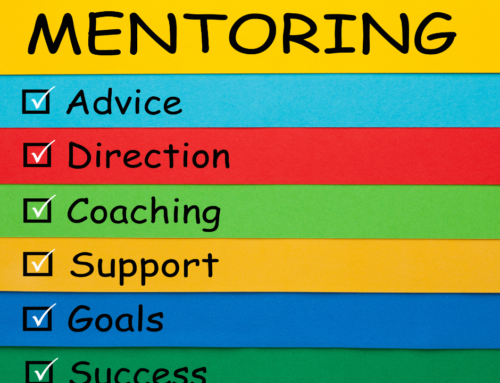The Mentorship-Coach Approach
So how can managers and supervisors utilize coaching and mentoring skills as an everyday practice throughout an organization?
A competent coaching style can be difficult for even experienced and well-meaning managers or supervisors. Fortunately, with the right tools and support, almost anybody can improve and model the style in their workplace.
As a manager or supervisor, you can reinvent yourself to coach, mentor, and draw the vital energy, creativity, and learning skills out of the people you work with and lead.
It May Not Feel Comfortable When You Start
Your main goal is to find a way to bring the best out of the people you lead (serve). It may not be easy, but it’s not that hard once you start. Often, basic empathetic engagement and curiosity from a manager or supervisor are all it takes to get things moving in the right direction.
There are some tried and tested coaching models to look at. John Whitmore’s The GROW Model (Goal, Reality, Options/Obstacles, Will) would be a good place to start, or perhaps the Benning coaching model.
The What, When, Where, Why, and Who
An effective approach to getting to the root of anything is asking basic, open-ended questions about what, when, where, and who.
This forces people to focus on specific facts and makes the conversation real and constructive. It leaves little room for bias.
If we want team members to be receptive to coaching, it has to benefit them. Managers and supervisors need to emphasize why it’s valuable not only for the business or organization but also for an individual’s success.
By developing coaching skills, leaders learn to become better at recognizing situations where they don’t have to provide immediate answers. Rather, they understand that in such cases, they may be able to offer more value by listening attentively, asking the right questions, and supporting their team as they work out the best solution.
Modeling The Behavior
If managers and supervisors want their team members to embrace coaching and mentorship, they must first embrace it themselves! They need to model it. This requires all leaders to embrace a growth mindset—where everybody in any business or organization is open to constant learning.
You will be soliciting thoughts from the people you interact with, listening empathetically to what they are saying, asking open-ended questions, and demonstrating that one’s role as a manager or supervisor is to support and not to judge.
Modeling is effective and powerful because it shows that a manager or supervisor does walk the talk. It also builds momentum.
When team members doubt what behavior is appropriate, they are likely to copy the actions of others—particularly those with power and status within a business or organization.
As we have seen in many social behaviors (think politics), people will model the behavior of those they respect or exhibit influence in their lives.
Ask Questions – The Right Questions
If I needed to summarize this post in four short questions from a manager or supervisor to a team member, they would be the following:
- What is it that you are trying to do?
- What is it working well?
- What is not working at all or needs improvement?
- How can I help?
An Example You Could Follow
Each person that participates in our leadership training programs is invited to join what we have called our 52-Week Accountability Program. Every Friday afternoon, I email them a small motivational and self-improvement piece and then ask the recipient three questions, which are the same each week.
Those questions are:
- What did you do to grow yourself in the last seven days?
- What will you do to grow yourself in the next seven days?
- Is there anything that I can help you with?
No one is forced to reply to me (although if they do, I will always personally answer them) but having the weekly reminder about the importance of having a growth mindset seems to help many people.
After a whole year of this, the hope is that it is a habit and practice they find themselves doing without a nudge from Coach Phil.
I have just shown you by my actions what you could do to grow and enhance your leadership. The mentor-coach leadership style at work.






